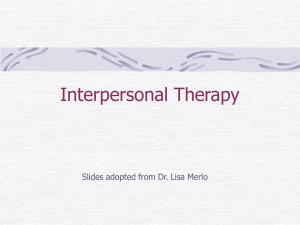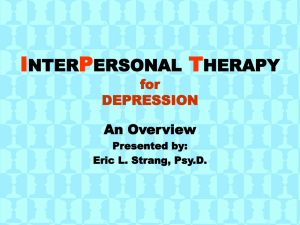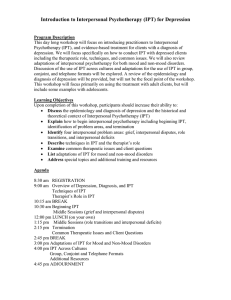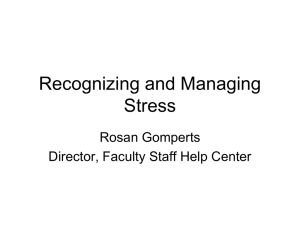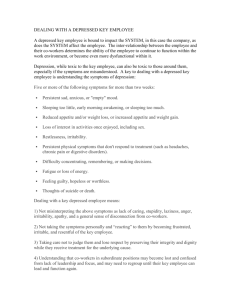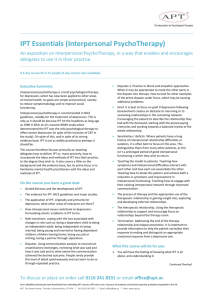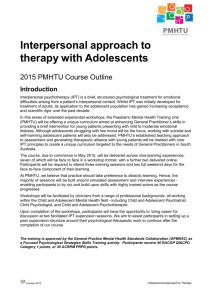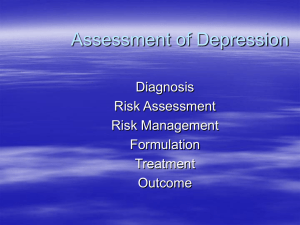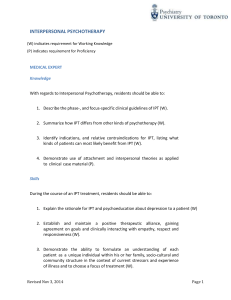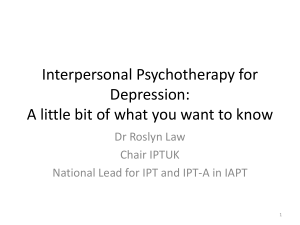Dear - Pennine Care NHS Foundation Trust
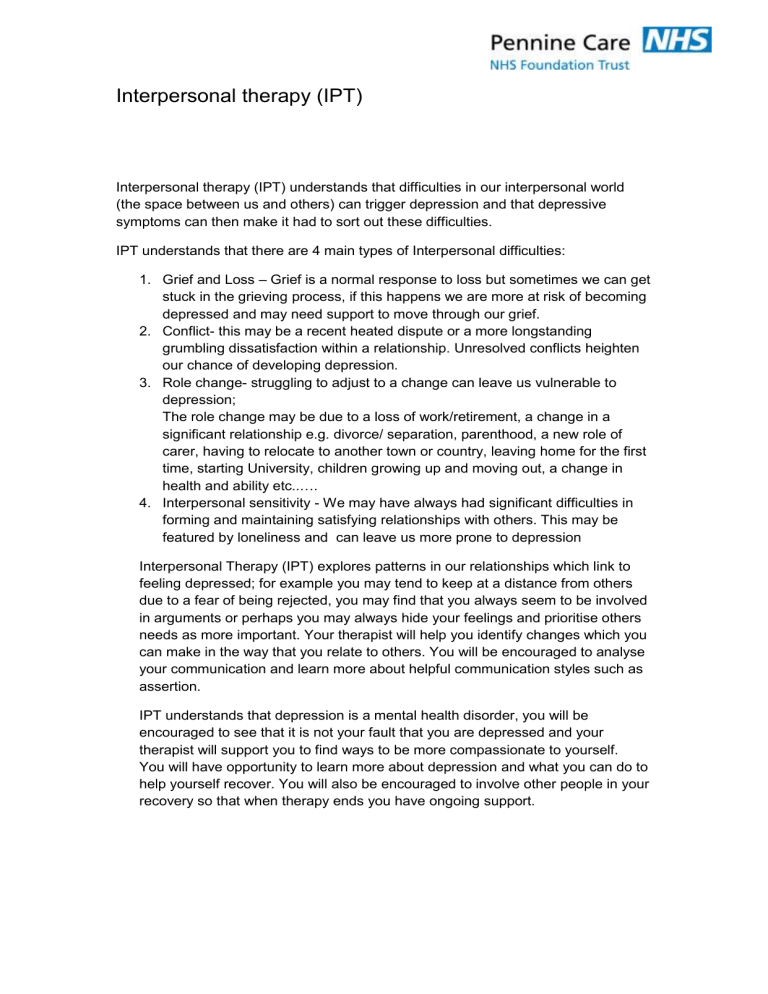
Interpersonal therapy (IPT)
Interpersonal therapy (IPT) understands that difficulties in our interpersonal world
(the space between us and others) can trigger depression and that depressive symptoms can then make it had to sort out these difficulties.
IPT understands that there are 4 main types of Interpersonal difficulties:
1. Grief and Loss – Grief is a normal response to loss but sometimes we can get stuck in the grieving process, if this happens we are more at risk of becoming depressed and may need support to move through our grief.
2. Conflict- this may be a recent heated dispute or a more longstanding grumbling dissatisfaction within a relationship. Unresolved conflicts heighten our chance of developing depression.
3. Role change- struggling to adjust to a change can leave us vulnerable to depression;
The role change may be due to a loss of work/retirement, a change in a significant relationship e.g. divorce/ separation, parenthood, a new role of carer, having to relocate to another town or country, leaving home for the first time, starting University, children growing up and moving out, a change in health and ability etc..….
4. Interpersonal sensitivity - We may have always had significant difficulties in forming and maintaining satisfying relationships with others. This may be featured by loneliness and can leave us more prone to depression
Interpersonal Therapy (IPT) explores patterns in our relationships which link to feeling depressed; for example you may tend to keep at a distance from others due to a fear of being rejected, you may find that you always seem to be involved in arguments or perhaps you may always hide your feelings and prioritise others needs as more important. Your therapist will help you identify changes which you can make in the way that you relate to others. You will be encouraged to analyse your communication and learn more about helpful communication styles such as assertion.
IPT understands that depression is a mental health disorder, you will be encouraged to see that it is not your fault that you are depressed and your therapist will support you to find ways to be more compassionate to yourself.
You will have opportunity to learn more about depression and what you can do to help yourself recover. You will also be encouraged to involve other people in your recovery so that when therapy ends you have ongoing support.
IPT is delivered in up to 16 sessions within 3 stages:
1. Initial Phase – You will be supported to tell your story of depression which will help you to make sense of what has led to you becoming depressed, what is keeping you depressed and what you can do to move forwards from depression.
2. Middle Phase –You will have time and support to address the interpersonal difficulty which has triggered your depression and will have space to explore your feelings about this.
3.
Ending Phase - You will be guided to review the progress that you have made and to develop a staying well and relapse prevention plan. IPT understands that endings can be difficult and so within the final few sessions you will be encouraged to explore how you feel about the ending of the therapeutic relationship and time will be spent saying goodbye.
